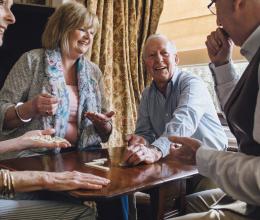Basic principles
In simple terms, if somebody is paying for something, then it is a supply, and that means the VAT treatment needs to be established. Common issues are digital supplies (critical where there are cross border customers), room or facility hire, conferences… a long list.
But these are clearly trading activities as something is being provided for a consideration, the trick is ‘merely’ establishing the VAT treatment of the income generated, and also what to do with the VAT incurred in respect of the activity.
Other income sources need to be considered on their merits. The basic rule is if money is freely given, and nothing received in return, then it is outside the scope of VAT.
VAT treatment of donations, grants and sponsorship
In respect of donations, these are normally a financial gift to a cause worthy of support by the donor. As such, provided nothing is given in return for the money, it is a non-conditional transfer of money and outside the scope of VAT.
Grants can be more difficult, but if no benefit is providing the funding, either by the grantor or any other party, then this is outside the scope of VAT and free of VAT. Issues can arise if there is a benefit to the grantor (they receive something in return for the grant) or a third party. HMRC revisited their guidance on this area a few years ago, reflecting the evolution of grants and have listed indicators to determine the VAT treatment, making this quite judgemental.
Sponsorship is generally seen to be within the scope of VAT and as such, UK sponsorship falls within this scope. HMRC apply a wide definition to sponsorship, blurring the lines with what others may consider a donation. For example:
- Displaying logos
- Giving sponsors tickets or preferential rates
Then the sponsorship is considered within the scope of VAT. Different rules apply to funds from lottery distributors.
Consequences
The qualifying income can count towards the registration threshold, and be subject to VAT. This may not be an issue for a commercial sponsor and can improve VAT recovery for the charity. But it needs to be identified and properly accounted for otherwise there is risk in respect of penalties.
The takeaway
All charities should model their income and the VAT consequences. The issue is in respect of both income (VAT due) and purchases (VAT recovery). HMRC have moved to consider tax controls, these are prudent from a governance perspective and providing certainty for the charity, particularly if income diversifies.
The next step
For any advice on VAT treatment of donations & sponsorship for your charity, please contact Sean Glancy or your usual UHY charity adviser.




